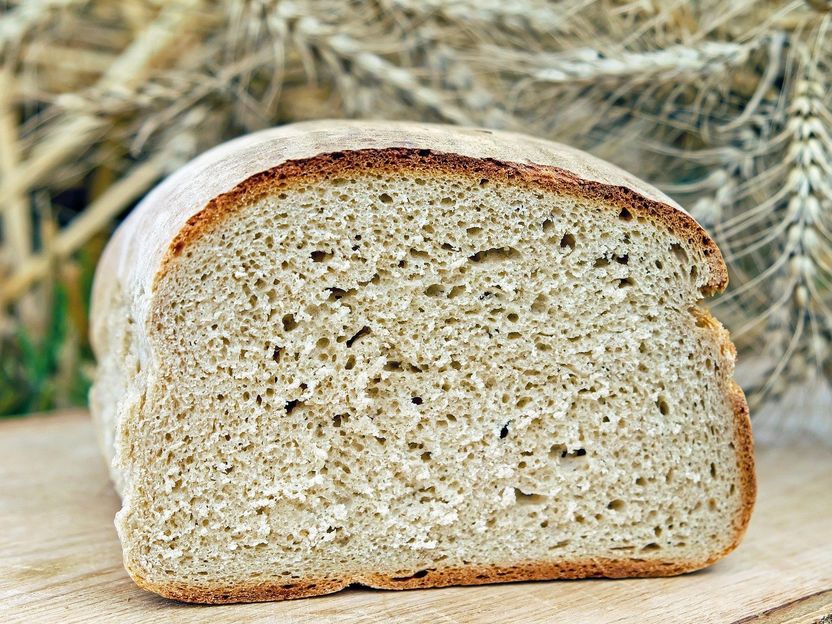Porridge bread rises as the next sourdough
With the pandemic confining many people to their homes, bread-making has emerged as a popular baking choice to keep the quarantine blues at bay. Be it due to short supply of shop-bought products or the need for a comforting and creative activity, the coronavirus has created the perfect environment for a surge in bread baking – and given rise to artisanal sourdough baking.

Couleur / Pixabay
Sourdough bread is made by the fermentation of dough by naturally occurring lactobacilli and wild yeast, providing gut health benefits and lower gluten content for consumers. In fact, 2 out of 5 French consumers think sourdough bread is healthier than standard bread.
Porridge bread is a sourdough recipe that combines cooked porridge into the dough after bulk fermentation, originally popular in Ireland as a way to use leftover porridge. The cooked porridge with its fully gelled starch releases its bound moisture back into the bread upon baking. Therefore, porridge bread combines all the hallmark characteristics of sourdough such as gut health benefits and lower gluten content, with the added benefits of more moisture, softer texture, added fibre and longer shelf life than traditional sourdough. The softer texture could actually attract more consumers to sourdough that had previously found it too chewy.
Sweden’s Pågen bakery brand has recently launched its porridge bread for breakfast, encouraging consumers to “start your day with a hearty breakfast”. The brand is highlighting the technique of baking a pulp (porridge) of oats into the dough to make the bread extra moist and tasty.
Respond to health concerns by highlighting gut health and immunity benefits
COVID-19 has reinforced the importance of having a healthy immune system. While the impact of the pandemic continues to unfold, the link between probiotics, prebiotics, gut health and immunity will be attractive to consumers looking for health boosting and more specifically immunity-boosting products. For 1 out of 6 German consumers, for example, health benefits such as support for gut health are an important factor when buying bread or baked goods. As a fermented product, sourdough bread could tap into this area and highlight its gut-loving properties. Adding oat porridge can give consumers the additional fibre and whole grains they want in bread while leveraging the benefits of β-glucan for lower blood sugar and reduced risk of heart disease.
Lieblings Haferherz (Oat Bread) was launched in Germany and is rich in fibre and protein, and features beta glucan from oats, which contribute to the maintenance of a normal cholesterol level. This bread is also free from flour and yeast.
What Mintel thinks
As the COVID-19 virus is spreading around the world, the enforced lockdown elevated the role of home baking as enjoyable means to occupy oneself, while also pushing health concerns to the top of the agenda. In the next 12-18 months, as consumers cope with the reality of the ‘next normal’, bakery products that offer comfort paired with health attributes such as reduced sugar formulations, gut health and immunity will continue to be high in demand. In terms of taste and texture, brands could further elevate their porridge bread by adding maple syrup, nuts or fruit that consumers would add to porridge at home.
Most read news
Other news from the department business & finance

Get the food & beverage industry in your inbox
By submitting this form you agree that LUMITOS AG will send you the newsletter(s) selected above by email. Your data will not be passed on to third parties. Your data will be stored and processed in accordance with our data protection regulations. LUMITOS may contact you by email for the purpose of advertising or market and opinion surveys. You can revoke your consent at any time without giving reasons to LUMITOS AG, Ernst-Augustin-Str. 2, 12489 Berlin, Germany or by e-mail at revoke@lumitos.com with effect for the future. In addition, each email contains a link to unsubscribe from the corresponding newsletter.




















































